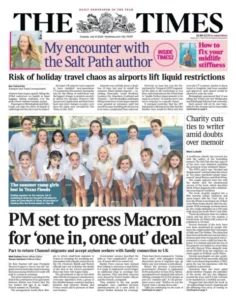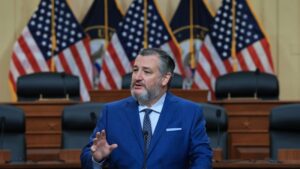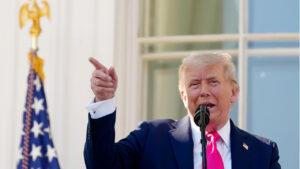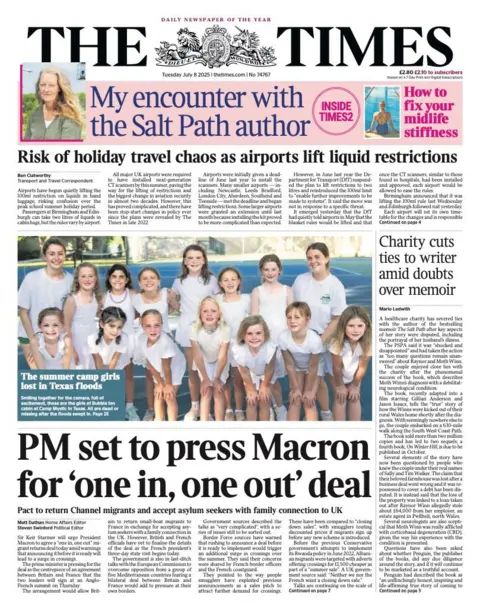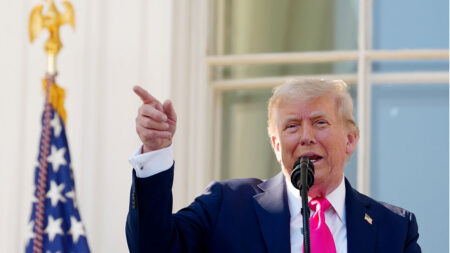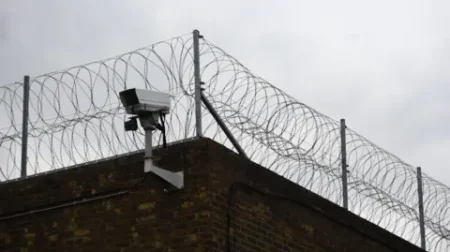The recent headlines spotlight critical international relations and domestic issues, particularly focusing on the upcoming state visit of French President Emmanuel Macron to the United Kingdom. As reported by various leading newspapers, Prime Minister Sir Keir Starmer appears poised to press Macron on a pressing concern regarding immigration policy. Specifically, he is advocating for a “one in, one out” migrant return deal, amidst widespread anxiety that premature announcements might provoke an uptick in illegal crossings between the two nations. This development is underscored by significant front-page coverage in outlets such as *The Times*, emphasizing the urgency of the issue as Macron’s Tuesday arrival approaches.
Another noteworthy angle highlighted during Macron’s visit pertains to a tragic incident unrelated to immigration but yet grabbing headlines: the poignant loss of girls who died or went missing following devastating floods in Texas. Reports detail the deep emotional impact of these events, shedding light on the humanitarian crises that occasionally get overshadowed by more political headlines.
Beyond the British-French diplomatic landscape, several other stories continue to capture public attention. The *Daily Telegraph* reports on the sentiments expressed by King Charles III, who is expected to tell Macron that “no borders” exist between the UK and France, emphasizing the need for cooperation. Meanwhile, the legal troubles of two brothers, Mohammed Fahir Amaaz and Muhammad Amaad, charged in connection with an alleged assault at Manchester Airport, are being closely monitored, with evidence including CCTV footage presented in court.
In a more sensational story, *The Daily Mail* addresses the anticipations surrounding Macron’s visit, with strong opinions voiced regarding the hefty £771 million given to France to address illegal Channel crossings. Critics question the effectiveness of these funds, as frustrations simmer over persistent illegal immigration issues. In a darker narrative, the paper also reports on Erin Patterson, an Australian woman recently convicted of murder for serving tainted mushrooms at a family dinner, which resulted in the tragic deaths of her family members.
In the realm of celebrity and scandal, the *Sun* conveys breaking news concerning Prince Andrew, who may now travel freely while the FBI closes its investigation into his past associations with Jeffrey Epstein. This news has stirred various reactions, particularly among Epstein’s victims, as disputes over the circumstances surrounding the closure of the investigation continue, raising broader questions about accountability and justice.
As political discourse heats up, the *Guardian* informs readers about proposed amendments to the Employment Rights Bill that would bar companies from enforcing non-disclosure agreements to silence victims of workplace harassment, a significant step towards safeguarding employee rights. Similarly, the *Daily Express* critiques Labour’s housing strategy, describing it as “hypocrisy on stilts,” as ministers endorse the construction of new homes in areas where they previously opposed such developments.
In a headline that aligns more with speculative science than political commentary, the *Financial Times* discusses President Trump’s decision to temporarily delay new tariffs on imports from South Korea and Japan. This insight into international trade relations arrives alongside a moving tribute to the victims of the London bombings, highlighted by prominent UK officials at the memorial marking the anniversaries of these tragic events.
Lastly, the i Paper reports that revisions to a welfare bill might soon enhance the lives of 50,000 children and adults, an adjustment made possible by a significant backbench rebellion in Parliament that altered the legislation’s path. Additionally, the *Metro* reports chilling accounts from Erin Patterson’s ex-husband, asserting that her attempts at poisoning him occurred multiple times prior to the fatal dinner, revealing a sinister narrative rooted in family betrayal.
In all of these stories, the complex interplay between politics, tragedy, and science forms the backdrop of an evolving national conversation as readers navigate the landscape of current affairs.

